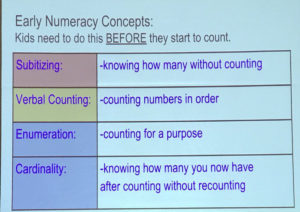Behold the human, after birth,;a baby would go through various developmental stages that would enable them to become a fully functioning human. Grasping onto things, crawling, walking and talking are iconic events in one’s life. Comparatively, different grade levels in the educational system teach kids different skills and the subsequent grade level enhances those skills. It’s imperative to consider how kids can go from “1,2,3” to “y=mx+b” or from reading a Peter and Jane book with simple sentences to reading a research article with complex sentences that requires understanding. The answer is quite simple, that with every grade level comes different learning experiences.
According to The National Education Association’s article “Why We Care About the K in K-12,” kindergarten is vital to the educational development of children.
It is highly concerned with ensuring that kids can comfortably transition from kindergarten to primary school and so on. In this article, studies have shown that teachers are concerned that too many students, especially students that come from low-income homes enter elementary school disadvantaged. This is a result of their cognitive, social, language and emotional skills being inept that would enable success in school. Kindergarten is where the foundation of learning begins. Kids are taught how to spell and write their names, begin learning letters, become familiar with sight words and sounds, read, learn to tell stories and understand how to use a book, just to name a few.

Credit: @DDSB_CCEL
Above all, as time progresses and students cross over from kindergarten to enter elementary school, this is where the concepts they learned from kindergarten are refined. Elementary school seeks to provide basic reading, writing and computation skills. Furthermore, in elementary school, students should be able to identify and maintain basic social roles. They would learn to build their vocabulary and become familiarized with concepts, symbols and rules. Hence, different grade levels in school will have a profound effect on the development of children, both academically and socially.
According to “School and Children: The Middle Childhood Years” published by Edgar Epps and Sylvia Smith, in elementary school, kids are taught basic literacy, computational and conceptual skills. At this stage, kids also develop cognitive skills that would enable them, to solve complex problems. Additionally, kids begin to realize their various learning styles and choose suitable study habits for themselves. Elementary school exhibits what skills were taught in kindergarten and will enhance those skills.
On the other hand, high school is where all the fundamental skills adapted from kindergarten and elementary school become highly enhanced and requires a greater level of efficiency.
In high school is where teachers expect greater skills and responsibility of students, based on fundamental skills and values they were taught in previous years. Therefore, the sentence “I forgot my homework at home” is least expected. In high school, students should have a sense of independence. Hence, students should not have to rely on teachers or parents to remind them of their responsibilities.
In preparation for the work field, high school is where students learn skills such as responsible decision making, for example, should they study or hang with friends? Organization, being prepared for class and having necessary materials are also important, not to forget, collaboration/ group work. In high school, teachers aim to allow students to work together to get a feel of how it will be working for a company/ organization and in college. Additionally, and most importantly, high school is where students should begin to think about what prospective careers and which subjects to select to gain a greater understanding of the selected career path.
Kara Winkler, the Coordinator of the Education Department at Saint Leo University, stated that she has two kids in elementary school. She strongly disagreed that students are in school too long from grades k-12. The 13 years that kids are in school is a great amount of time for them to learn various skills that would make them proficient students in college. Winkler stated that each year students enter different grade levels, it is a way of them to build on what they were taught in previous years. Most importantly, she mentioned that when kids are in school from k-12, it allows them time to grow mentally and emotionally.
Above all, the education system from k-grade 12 is vital in every aspect of students’ lives. It’s a developmental process that should exhibit progress at every sequential grade level. Skills and lessons are built upon to provide greater efficiency and prepare students for the next grade level and eventually college and the work field.





